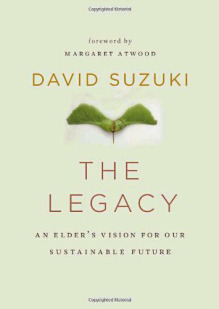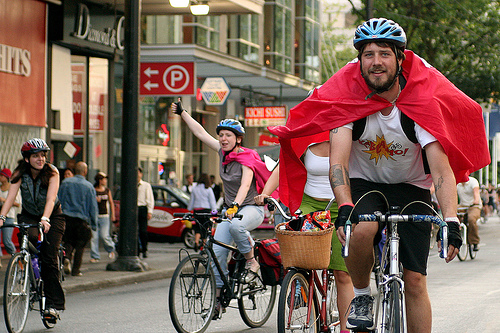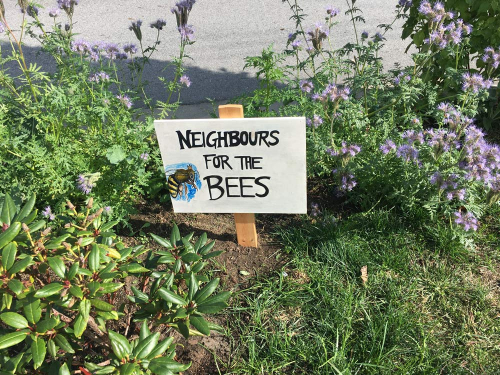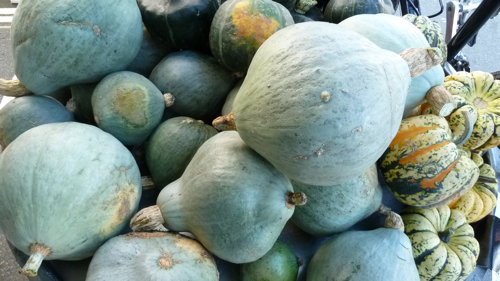Force of Nature: The David Suzuki Movie airs Sunday on CBC
I was very fortunate to have attended David Suzuki’s Legacy Lecture in December, 2009. It’s hard to believe it’s been over a year since that evening at the Chan Centre that induced goosebumps and inspired the longest standing ovation I’ve ever witnessed. It became a book and award-winning documentary, and this Sunday, the venerable CBC airs Force of Nature: The David Suzuki Movie at 8pm. (Repeats April 3.)
I knew the power of his voice and his story the first time I heard him speak in our humble gathering space at the Foundation’s office. I’d never been to one of his lectures but I knew David had been toiling over his Legacy speech for quite some time before the nearly flawless delivery that evening, an intensely rehearsed and refined story that dances its way into our hearts. Like any good story it hits varying emotional points, triggers tears and joy, but inevitably leaves us feeling uplifted. If his intent as an environmentalist and scientist was really about fear-mongering like detractors suggest, the mood at the end would have been gripped in paranoia, instead of the recognition that we can dream, imagine and create, together, a future in which we live within the limits of nature. That future is not a return to dark ages; indeed, it’s full of vivid life, community and bright ideas. It’s a future where we’re no longer talking about “being green,” it’s intrinsically our way of life. What is so fearful about that?
 The alternative, if we do nothing to reign our overconsumption back to a place this one planet can sustain, is something to be feared, truthfully. But David isn’t trying to paralyse us, or tell us it’s over and prepare for the worst. He is simply being honest — and his honesty is perhaps never so apparent as in the film produced from the lecture, where we come to understand the man who has fought, lost, and won so many battles. If he and the rest of us stood in fear in the face of adversity and great challenges, we would never see any success.
The alternative, if we do nothing to reign our overconsumption back to a place this one planet can sustain, is something to be feared, truthfully. But David isn’t trying to paralyse us, or tell us it’s over and prepare for the worst. He is simply being honest — and his honesty is perhaps never so apparent as in the film produced from the lecture, where we come to understand the man who has fought, lost, and won so many battles. If he and the rest of us stood in fear in the face of adversity and great challenges, we would never see any success.
I challenge you to redefine what “progress” looks like. (My art history instructor called our situation “regress.”) Is it open pit mines, landfills of discarded stuff, and convenience food-like substances? “Progress” implies moving toward something better; progress is therefore leaving our planet and communities to our children in a state better than that in which we found it.
Using up our resources is not “better.” Destroying ancient South American aboriginal cultures and forests to drill for oil consumed in cars a continent away in a polluted suburbia is not “better.” Overworking ourselves in order to pay for those cars and our 52″ TVs and a new whatever every year when the latest one comes out is not “better.”
My positive vision of a better future includes bees pollinating plants on my balcony garden in a transit- and walking-oriented community where I can bike to a farmer’s market, bake bread with local wheat and eat it with local cheese and organic blueberries. I will not own a car but there will be a co-op car if I need it. I can walk to my friend’s house through a park and a greenway where I run into neighbours with dogs and children who have clean air to breathe and no cancer or diabetes. My phone will last several years and be fully recyclable at the end of its life with a company take-back program. It looks a lot like the Greenest City but it’s the new norm, not a utopia. And it’s beautiful.
What’s your positive vision? Has David Suzuki inspired you?
I encourage you to tune in Sunday at 8pm on CBC for some inspiration.
The Legacy: An Elder’s Vision for our Sustainable Future, by David Suzuki, is published by the David Suzuki Foundation and Greystone Books.
 This daily green blog challenge is in celebration of David Suzuki’s 75th birthday, supporting the David Suzuki Foundation. Please help me out by sponsoring me online now.
This daily green blog challenge is in celebration of David Suzuki’s 75th birthday, supporting the David Suzuki Foundation. Please help me out by sponsoring me online now.
Note: I am writing solely on my own behalf, and do not claim to represent the David Suzuki Foundation or its views here.



